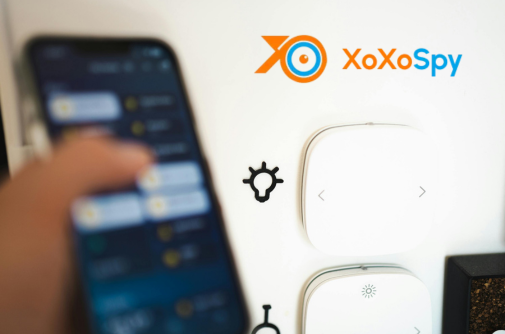Incognito mode has become one of the most talked-about features in mobile browsing. On Android, it’s often used to keep internet activity private, or so users believe. When you open an incognito tab, it feels like your actions vanish the moment you close the browser. But is that true?
This sense of privacy has sparked curiosity, especially among parents, employers, and partners. That’s where Android spy apps come into the picture. These apps claim they can see what others can’t—including what happens during an incognito session.
But can these spy tools expose what’s meant to stay private? In this article, we’ll dig into whether incognito browsing history can be revealed using monitor apps or any Android tracker app.
Wondering if incognito mode is truly private? This guide explores whether a spy phone app can reveal hidden browsing history on Android—what’s possible, what’s hype, and what to watch for.
What Is Incognito Mode on Android?
Incognito, or private browsing mode, is a feature available in most Android browsers like Chrome, Firefox, and Edge. Its main purpose is to avoid storing:
- Browsing history
- Cookies and site data
- Form inputs and search terms
It’s great for temporary browsing—like when you’re on a shared device—but it’s far from being invisible.
What incognito mode doesn’t do:
- It doesn’t hide activity from your internet provider.
- It doesn’t stop Google or the websites you visit from tracking you.
- And most importantly, it doesn’t block device-level tracking—this is where spy apps come in.
Overview of Android Spy Apps
Android spy apps are tools designed to monitor someone’s device activity, often secretly. Some are marketed for parental control, while employers or suspicious spouses use others. These apps are surprisingly powerful.
Common features include:
- Reading call logs and text messages
- Viewing social media activity
- Tracking internet history, even if the history is deleted
- GPS location tracking
- Keystroke logging (recording typed words)
- Screen capture and remote access
Some Android tracker apps go beyond the surface, diving deep into browser usage, even in incognito mode.

Can Spy Apps Reveal Incognito History?
Here’s the tricky part. Incognito mode is designed not to save history. So, in theory, even the user won’t be able to see what they did after closing a tab. But some advanced monitor apps find ways around this limitation. Here’s how:
- Keylogging:
Spy apps with keyloggers can record everything typed into the device—including search queries or website addresses typed while using incognito mode. - Screen Recording or Snapshots:
Some apps can take screenshots or record what’s happening on the screen at regular intervals. So even if a site isn’t saved in history, a visual record might exist. - Browser Monitoring:
Some spy tools can tap into the browser activity itself, showing what sites are being accessed regardless of incognito. - Network-Level Tracking:
More advanced apps might log DNS requests—basically tracking which sites your device is communicating with, even if they aren’t saved locally.
So, yes, certain Android spy apps can reveal incognito browsing activity, but not all apps are capable of it. And even the best ones have limitations.
Limitations and Accuracy of Spy Apps
Let’s not pretend these apps are flawless. Some of the biggest limitations include
- Root access: Many powerful spy features only work if the Android phone is rooted, which can void warranties and cause other issues.
- App quality: Many apps claim to track incognito history but deliver poor or unreliable results.
- False positives: Some apps might log incomplete or incorrect data.
- Battery drain and performance lag: Running a spy app can slow down the phone or make it behave oddly.
Legal and Ethical Considerations
Before you even think about using one of these apps, know this: monitoring someone’s device without their consent is often illegal.
- In most countries, it’s against the law to install a spy app on someone’s device without them knowing—especially for personal use.
- Employers must disclose monitoring to employees.
- Parents usually have legal leeway with minor children, but ethical concerns still apply.
In short, just because it’s technically possible doesn’t mean it’s legally or morally acceptable.

How to Detect Spy Apps on Android
Worried that your device might be tracked? Here are some warning signs:
- The phone battery drains unusually fast.
- You hear background noises during calls.
- The phone gets warm even when not in use.
- You see strange app permissions or unknown apps installed.
What you can do:
- Check for device administrator permissions.
- Use antivirus or anti-spyware tools.
- Perform a factory reset if needed.
Alternatives to Spy Apps for Parental Control
If you’re a parent, there are more transparent and safer ways to monitor your child’s device:
- Use Google’s Family Link app.
- Set up safe browsers or parental control apps.
- Maintain open conversations about online safety.
Spying often leads to broken trust. It’s better to find a balanced solution that works for everyone involved.
Conclusion
So, can Android spy apps reveal incognito browsing history? Yes—some of them can, using techniques like keylogging, screen capture, and network tracking. But not all apps are effective, and there are serious legal and ethical questions around using them.
Whether you’re a concerned parent or a suspicious employer, it’s crucial to understand both the power and the pitfalls of these tools. Tracking internet history through private mode is possible—but it’s not foolproof, and it’s rarely justifiable without consent.
 FAQs
FAQs
Q1: Do Android spy apps work without rooting the phone?
Some do, but their features are limited. Rooted devices enable deeper tracking, including access to incognito activities.
Q2: Is it legal to use a spy app on my partner’s phone?
In most cases, no. Without explicit consent, using spy apps can be illegal and may lead to criminal charges.
Q3: Can I see my child’s incognito history without a spy app?
Not directly, but you can use parental control tools like Google Family Link or set up DNS-level tracking through your home network.

